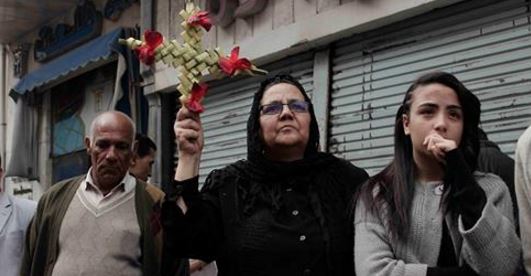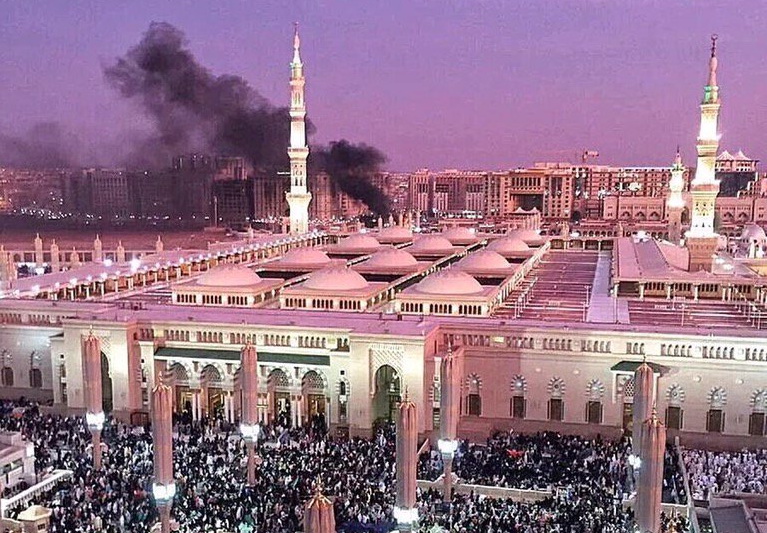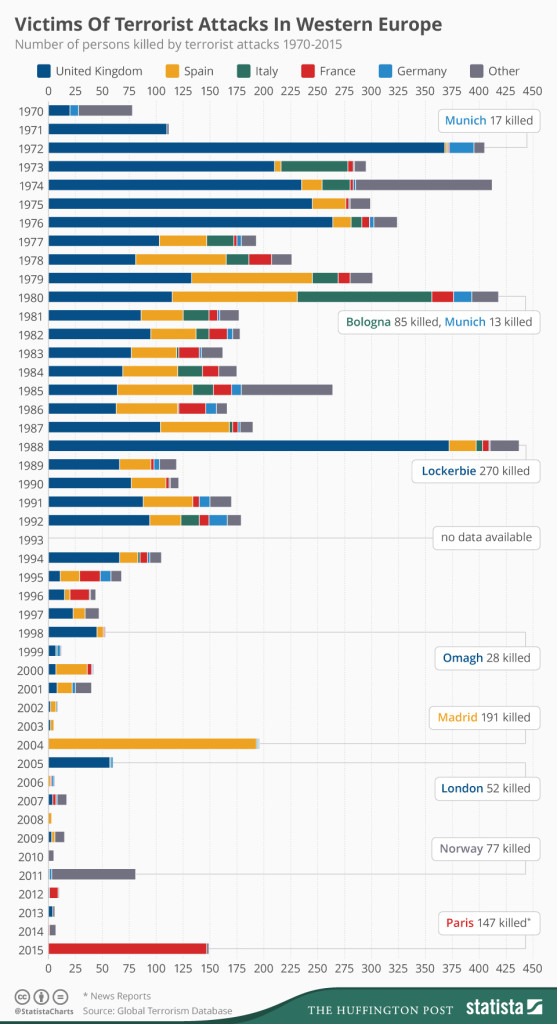An extended piece of my former blog post for Mada Masr on the ways in which pain, anger and grief are being internalized vis-à-vis the state and the city after the tragic church bombing in Alexandria.

It was not supposed to be like this. The week leading up to the annual Sham el-Nassim holiday is usually filled with joy and elation as we welcome the spring. And it certainly was not supposed to be like this for Christians on their holy Palm Sunday. Twenty-eight victims lost to the bombing at St. George Coptic Orthodox Church in Tanta, and 17 lost to the bombing at St. Mark Coptic Orthodox Church in Alexandria.
Dark clouds had spread on Sunday morning, and I had remarked to a friend that this was quite unusually gloomy for April weather in Alexandria. It turned out to be fitting for the events that were to come in a few hours. Alexandria, historically, seems to understand itself as a city when it is confronted with tragedy.
In the wake of the bombing, the downtown streets were on lockdown and traffic appeared frozen in time. This was not the average traffic standstill, as rarely was a car horn sounded. It was as if everyone had sensed, or was in the process of being informed through their mobile phones, what had just happened. Now, the trademark noise-sutured impatience of traffic dissipated as drivers perhaps realized that arriving late to your destination may not be the worst that can happen in your day. The scene along the Mansheya corniche could have been ripped out of a Hollywood blockbuster in which immobilized commuters had transfixed their gaze at some impending meteorite about to strike their city. A bombing in Tanta, a bombing in Alexandria, a reported (but later dismissed) second bombing in Alexandria. Where next?
The subtext was the reemergence of the eve of 2011, when a devastating terrorist explosion targeted the Two Saints Church in the eastern district of Sidi Bishr, leaving 25 dead and over 200 injured. This was supposed to be the last tragedy of its kind, giving birth to a new civic spirit to counter the infamy and set the tone for the 2011 revolution a few weeks later. In a stage by stage process, it went roughly something like this: shock; melancholia; outrage; refusal of the status quo (which was illustrated, for example, through the adoption of the cross and crescent logo as a social media avatar or draped over one’s balcony); joining up with the growing street vigils; publicly denouncing the Mubarak regime as many mourners shouted at the funeral of the victims, “We want to fire the president and interior minister!;” as well as, significantly, the re-appropriation of the idea of Alexandria from the state by the public.
A new civic-driven discourse placed the city at the heart of political problems. This can be understood when, following the brutal security crackdown after the Sidi Bishr tragedy, the Muslim Brotherhood’s Sobhy Saleh cried, “It’s like we’ve been occupied by a foreign power. Alexandria has become an occupied country.” Or at times the tone was subtler, as AUC’s linguistic professor Reem Bassiouney pointed out in her recent work of an Alexandrian journalist who broke linguistic conventions and used the Alexandrian dialect in her reports, to imply “a shared identity that surpasses religious differences.” Therefore, a robust civic identity based on the popular trope agda nas (Bravest people) that the reporter is “authentic, tough, and, first and, foremost, a typical ‘Alexandrian’.” In other words, if the Egyptian identity could no longer furnish inter-religious cohesion and agency, the Alexandrian identity would have to step in.
But the mood was different this time. People’s reactions and emotions seem to be trapped in the intermission between shock and melancholia. In the days leading to the Palm Sunday tragedy, the biggest complaint dominating Alexandria’s conversations was the military’s economic project in Sidi Gaber, which has severely disrupted traffic flow. (This project has been perceived as negative enough to even sway pro-military supporters I know from their traditional positions.)
Yet there was an exposed fracture that could not be easily hidden. To the average resident, the military appears focused on its exclusive economic ventures, often to the detriment of the economy and the public good, while the police have developed a rapid method of cracking down on political protests and imprisoning countless activists, or in the case of bread-driven protests, swiftly negotiating them away. All the while, 17 dead bodies were strewn at the gates of a church of historical magnitude. These are questions the authorities will need to deal with — when they promise security in return for the citizen’s forfeiting of progressive governance, but are now unable to deliver that security.
However, the high talk on regimes, Sisi, the Islamic State, terrorism and geo-strategy, can be lost on the day-to-day life of an individual who struggles to survive and make meaning of forces beyond his or her control. The day following the bombing, life attempted to go on as normal but with a broken spirit and tinge of despair under the, still, grey skies. The men at the coffeehouse in front of my place smoked shisha without conversation, at times looking down to the ground; customers calmly bought their ful and falafel breakfast without the usual jostling; the fruit sellers did not yell to market their produce, and the signature smiles across the bakers’ faces were all but gone. No visible public argument or fight broke out on the streets in a very long time. There was a shared language of mourning that consisted of frequent silences, occasionally punctured by the innocence of cheerful children running around. Yet, melancholia deepened its claws to stunt the growth of any budding civic flower.
Even in these dark times you need to seek out a spirited hope and consolation. In the context of this discussion, it’s never far. I’m blessed to live between a Coptic Orthodox Church and a Catholic Church, both stand strong and resilient, and as a powerful reminder that this is, and will always be, one of the things that is beautiful about Alexandria and Egypt. The sound of church bells is a message to the forces of fanaticism and sectarianism (and even to the smug individual who deems Christians as second-class citizens) that churches, as well as the Christian life and evocative prayer chants within its heart, will not be silenced.
As a Muslim, these churches are my churches, they complete my identity, colorize my worldview, and deepen any understanding of my faith. Any harm that comes to them, its worshippers, and those who protect them, is a savage assault on my very being.
I wish I had clear answers to give. I don’t, and I hate to admit a sense of helplessness in all of this. I can only, along with others, ask questions, and keep asking questions, in the hope that the sinister matrix that oppresses and exterminates human lives in different manifestations — in Alexandra, in Egypt, in the Middle East and elsewhere — is eventually and somehow unravelled.


